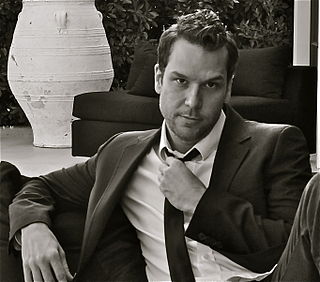A Quote by Marina and the Diamonds
You know what, if you compromise and do stuff that's not becoming to you as an artist, that's your fault.
Related Quotes
I was an executive running a pretty substantial group before becoming CEO, and I had no idea what it was like. When something goes wrong, people say, 'It's all your fault.' Your reaction is, 'It's not my fault.' But what do you mean? I was the founder, I hired everybody in the company, I was managing it.
I see nothing but Becoming. Be not deceived! It is the fault of your limited outlook and not the fault of the essence of things if you believe that you see firm land anywhere in the ocean of Becoming and Passing. You need names for things, just as if they had a rigid permanence, but the very river in which you bathe a second time is no longer the same one which you entered before
I'm sorry," she says. I wheel around. "You know, you're a total know-it-all. And it's incredibly rude sometimes; I mean, you're not perfect either, and you act like it's my fault but it's not my fault for being quiet or your fault for being a know-it-all. It's not your problem or my problem; it's their problem. They're the demented ones, not us, so don't take it out on me, because the only thing that holds things together for me is having someone else on the Not Demented Team.
There’s no “correct path” to becoming a real artist. You might think you’ll gain legitimacy by going to university, getting published, getting signed to a record label. But it’s all bullshit, and it’s all in your head. You’re an artist when you say you are. And you’re a good artist when you make somebody else experience or feel something deep or unexpected.
Sometimes compromise is important. Sometimes it's better to give in to someone else's wishes in order to have fun as a group or as a couple, or for the benefit of the team. Sometimes compromise is dangerous. We need to guard against compromising our standards to gain the approval or love of someone else. Decide when you can, and when you cannot, compromise. If it's not harmful and you are ambivalent about a decision, then compromise. If it could lead to breaking your values, compromise isn't a good idea.
The morality of compromise' sounds contradictory. Compromise is usually a sign of weakness, or an admission of defeat. Strong men don't compromise, it is said, and principles should never be compromised. I shall argue that strong men, conversely, know when to compromise and that all principles can be compromised to serve a greater principle.




































